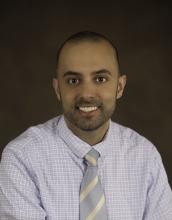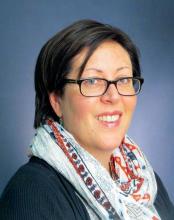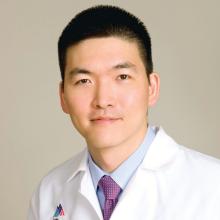Raj Sehgal, MD, FHM, clinical associate professor of medicine, University of Texas Health Sciences Center at San Antonio, pegged communication and behavioral medicine as two top picks.
2. Do you have a minute to talk? Peer-to-peer feedback (April 9, 2:50-4:20 p.m.)
“Those of us in academic settings spend a lot of time thinking about giving feedback to – and receiving feedback from – students and residents, but some of the most valuable feedback we can get is from our coworkers,” he said. “Many hospitalist groups are actively working on ways for their providers to learn from each other, such as peer observations, and this session should help in guiding some of those programs.”
3. Through the looking glass: A psychiatrist’s tricks for inpatient acute behavioral emergencies (April 10, 2:50-3:50 p.m.)
“Even for a seasoned hospitalist who never breaks a sweat treating the most acutely medically ill patients, the acutely psychotic (or agitated, or suicidal) patient can provoke significant anxiety,” Dr. Sehgal said. “The opportunity to gain another couple of ‘tools’ to add to our kit for these patients should help alleviate that feeling.”
No need for an academic meeting to be boring, said Weijen Chang, MD, SFHM, chief of pediatric hospital medicine at Baystate Children’s Hospital, Springfield, Mass.
4. Can we just stick to the “Bare Necessities”? – Things we do for no reason (April 9, 10:35-11:35 a.m.)
5. “Mirror, Mirror on the Wall”: Which articles are the fairest of them all? Top pediatric updates (April 10, 5:45-6:45 p.m.)
“I’d say Dr. Lenny Feldman’s [SFHM] ‘Things we do for no reason’ is a must-see. Lenny is a master at simplifying complex issues and communicating them in an easily understood manner, and he’s quite entertaining,” Dr. Chang said. “And of course, another must-see is Top Pediatric Updates. It is entertaining, educational, and we almost got thrown out last year for bringing beer!”
Sarah Stella, MD, FHM, a hospitalist at Denver Health, had a hard time choosing between the many interesting offerings. “There are quite a few great sessions this year that I’m interested in, but these are my top picks:”
6. Convert your everyday work into scholarship (and get it funded) (April 9, 1:35-2:35 p.m.)
“By virtue of their daily clinical and quality improvement/committee work, many hospitalists are well on their way to generating scholarship and funding, but are unsure how to make this conversion,” she said. “This workshop is a must for academic hospitalists working toward promotion who want a framework and tangible steps on how to get credit for what they are already doing.”
7. “Heigh ho, heigh ho,” it’s off to changing roles mid-career we go (April 11, 8:20-9:00 a.m.)
“Part of what attracts many of us to hospital medicine in the first place is the versatility of what we do and the ability to diversify based on our interests. I think this is a must-see for mid-career hospitalists like myself, or really any hospitalist dreaming of reinventing oneself.”
8. Winning hearts and minds at the bedside: Battling unconscious bias through cultural humility (April 11, 9:10-9:50 a.m.)
“Recognizing and confronting our implicit biases and how they affect patient-physician interactions is hard but incredibly important work,” Dr. Stella said. “I’ll definitely be attending this session by Aziz Ansari, DO, SFHM, to learn how to improve my relationship (and hence outcomes) with my patients.”
Harry (Hyung) Cho, MD, FHM, assistant professor of medicine and director of quality, safety, and value, division of hospital medicine, Mount Sinai Hospital, New York, had some diverse choices.
9. Being female in hospital medicine: Overcoming individual and institutional barriers in the workplace (April 9, 12:40-2:15 p.m.)
“This is a very timely, very important topic in the news and I think it will draw a lot of people,” he said.
10. Every patient tells a story and the art of diagnosis (April 9, 2:55-3:35 p.m.)
“The presenter is Dr. Lisa Sanders, who writes the ‘Diagnosis’ column for the New York Times and is a Yale University faculty member. She’s a great speaker and, incidentally, was a consultant on the TV show, ‘House, MD.’ ”
Raman Palabindala, MD, FHM, a hospitalist at the University of Mississippi Medical Center, Jackson, thinks the most important session at HM18 is the annual update.
11. Update in hospital medicine (April 10, 1:40-2:40 p.m.)“Almost every year, this is the most high energy presentation, and I don’t think I ever missed this session, no matter who is the presenter is,” he said. “As physicians, I think we need this update every year, and this is the best single hour where we can learn a lot as a hospitalist related to hospital medicine. This is the most concentrated extract of the entire meeting. What I learned about the behind scenes efforts up to 50-100 hours of work – why not we take advantage of this session.”
Lonika Sood, MD, FHM of the department of hospital medicine, Aurora BayCare Medical Center, Green Bay, Wis., has a passion for both leadership and scholarship, and her choices reflect that interest.
12. How to write a winning abstract (April 11, 7:30-8:30 a.m.)
13. Leadership positions in medical education: How to break into the field (April 11, 11:40 a.m.-12:20 p.m.)
14. Serious illness communication: A skills-based workshop (April 11, 8:00-9:30 a.m.)
“I would recommend all of those, especially for early-career hospitalists. And, having enjoyed and learned a lot from the workshops at HM17, I would highly recommend checking out a few that will help polish your communications – a much-needed skill in hospital medicine,” she said.
Finally, don’t just pick up another embroidered mouse ear hat on your way out. The best HM18 souvenir is taking back the knowledge you gained and – as Dr. Sood said – there’s a session for that.
15. How to bring the things you learn at SHM back to your institution: Advocating for high value care on hospital committees (April 11, 8:00-9:30 a.m.).
For more information on the HM18 education sessions, check the latest version of the conference schedule at http://shmannualconference.org/conference-schedule.
© Frontline Medical Communications 2018-2021. Reprinted with permission, all rights reserved.





